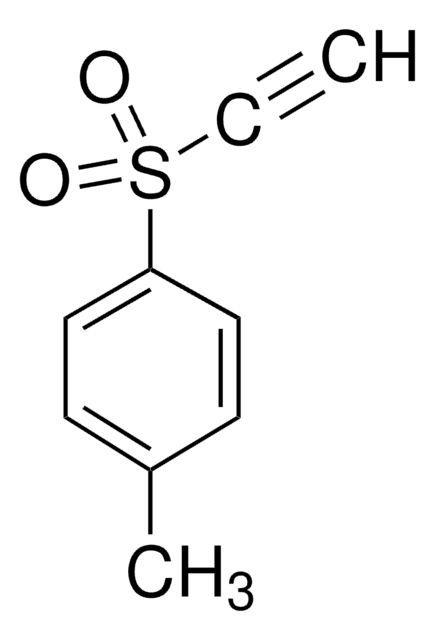241717
Phenyl vinyl sulfone
99%
Synonym(s):
(Ethenesulfonyl)benzene, (Ethenylsulfonyl)benzene, Ethenyl phenyl sulfone, Vinylsulfonylbenzene
About This Item
Recommended Products
assay
99%
form
solid
mp
67-69 °C (lit.)
solubility
organic solvents: soluble(lit.)
functional group
sulfone
SMILES string
C=CS(=O)(=O)c1ccccc1
InChI
1S/C8H8O2S/c1-2-11(9,10)8-6-4-3-5-7-8/h2-7H,1H2
InChI key
UJTPZISIAWDGFF-UHFFFAOYSA-N
Gene Information
human ... LOC129293(129293)
Looking for similar products? Visit Product Comparison Guide
General description
Application
Storage Class
11 - Combustible Solids
wgk_germany
WGK 3
flash_point_f
Not applicable
flash_point_c
Not applicable
ppe
dust mask type N95 (US), Eyeshields, Faceshields, Gloves
Choose from one of the most recent versions:
Already Own This Product?
Find documentation for the products that you have recently purchased in the Document Library.
Customers Also Viewed
Our team of scientists has experience in all areas of research including Life Science, Material Science, Chemical Synthesis, Chromatography, Analytical and many others.
Contact Technical Service











